SUSTAINABILITY PRODUCTS
RESOURCES
To call a product a sustainable product, it is important to have proper research and documentation on the resources, to ensure high quality, and correct marketing of the product.
The main resource for our products is jute and the secondary material is cotton. Cotton is only used for smaller parts of our products e.g., the handle on the bags.Jute is a vegetal fiber and is bio-degradable and recyclable, and many of our products also serve reusability purposes. Jute is considered a sustainable raw material due to its low energy need, low water use, and low CO2-emission. With our jute products and information thereof, we wish to inform both businesses and the general consumer on the many benefits of using jute as a raw material.
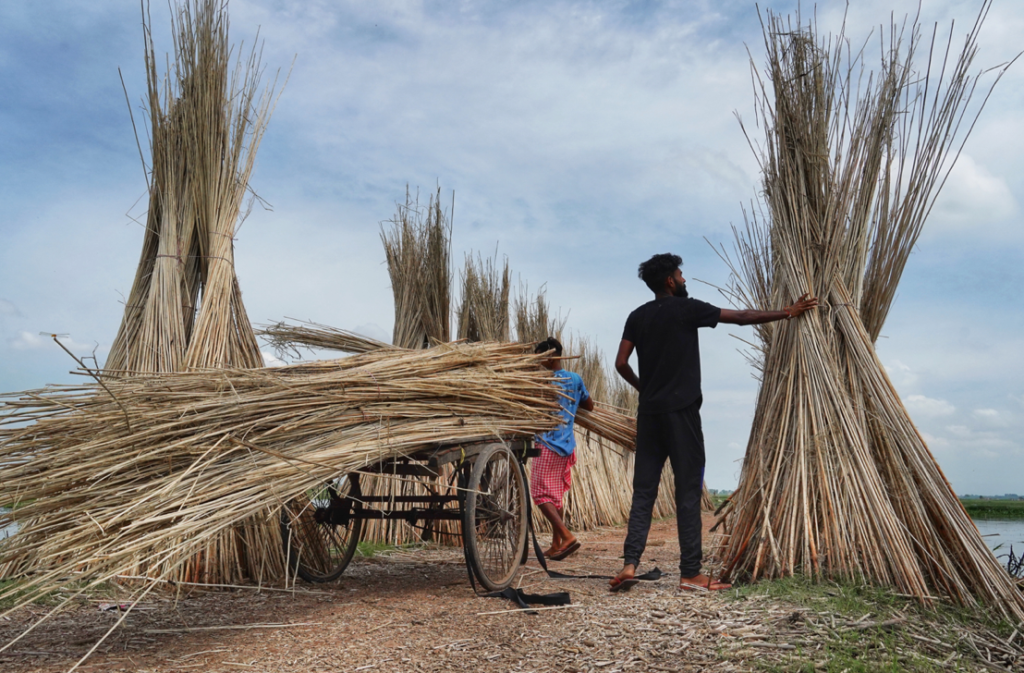
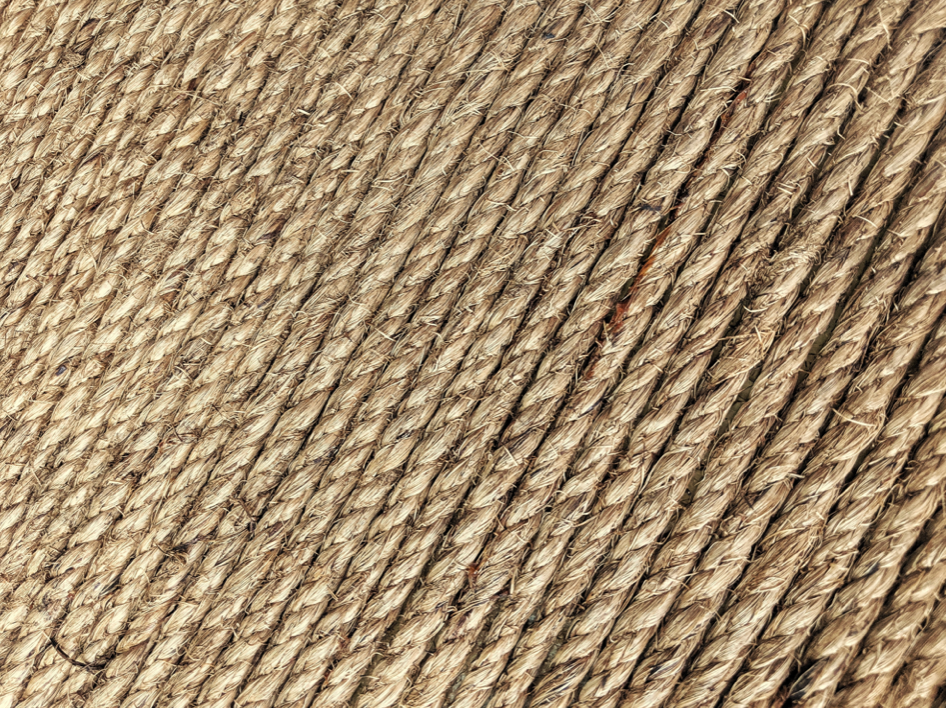
PRODUCT QUALITY
Making high quality products is very important to us. It is part of our purpose. Also, high quality is key in meeting our customers’ expectations and securing a high level of customer satisfaction. We believe jute is a very valuable material in terms of quality and sustainability. We are very aware that no material is fully sustainable, but we believe jute is a good substitute for a lot of other fabrics.
We are currently working on how best to document this claim. One approach is that we wish to calculate the products CO2-emissions and make LCAs of our products, comparing them to alternative products made from other raw materials. Beside jute being a very durable fabric, all our products are of high quality as they are made by seamstresses with many years of experience.
FAIR MARKETING
The main goal for us regarding fair marketing is to follow the legislation. A step in the right direction regarding documenting the benefits of our products is also through third party certifications. Currently none of our materials are certified. We will identify relevant certifications for our products, e.g., Organic, Fairtrade, or similar. One of our goals is to get our products certified as it will be easier to communicate more accurately about the advantages of our products.
With a certification we will help businesses & consumers make well informed and more responsible choices.

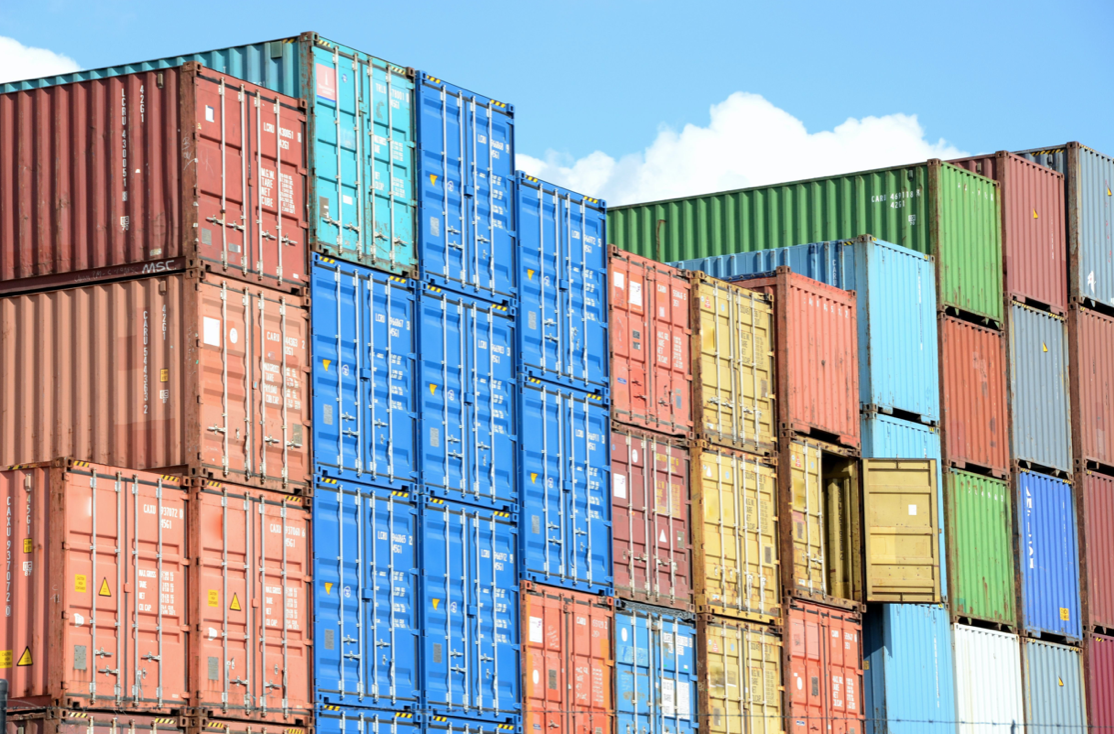
RESPONSIBLE SOURCING – SUPPLIER MANAGEMENT
We own our own production in Bangladesh, and it is important to us to secure human rights and work safety at our production and supplier levels.
We want to minimize risks in our supply chain, and we are currently exploring ways to do this efficiently e.g., with external help from platforms for ethical and social supply chain assessment and management.
We want to develop a Supplier Code of Conduct which our suppliers are required to sign. To ensure good collaboration we continue our close communication with our production site in Bangladesh. During winter 2023, our owners visited the site in Bangladesh to oversee second hand if any violations of any sort regarding the environment, human rights or worker rights could be detected.
LOCAL COMMUNITY
Sadly, many people in Bangladesh live in poverty. Therefore, supporting the local community in Bangladesh has always been a priority for us. Bangladesh lies close to our hearts, and we hope that by providing good jobs and decent pay to our employees, we can help improve their livelihoods and make them able to pay for food, medicine, and school for their children.
At Jutebar, we hope to facilitate a stronger cultural and economic bridge between Denmark and Bangladesh by selling our products in Denmark, and with our company activities and engagements in Bangladesh.
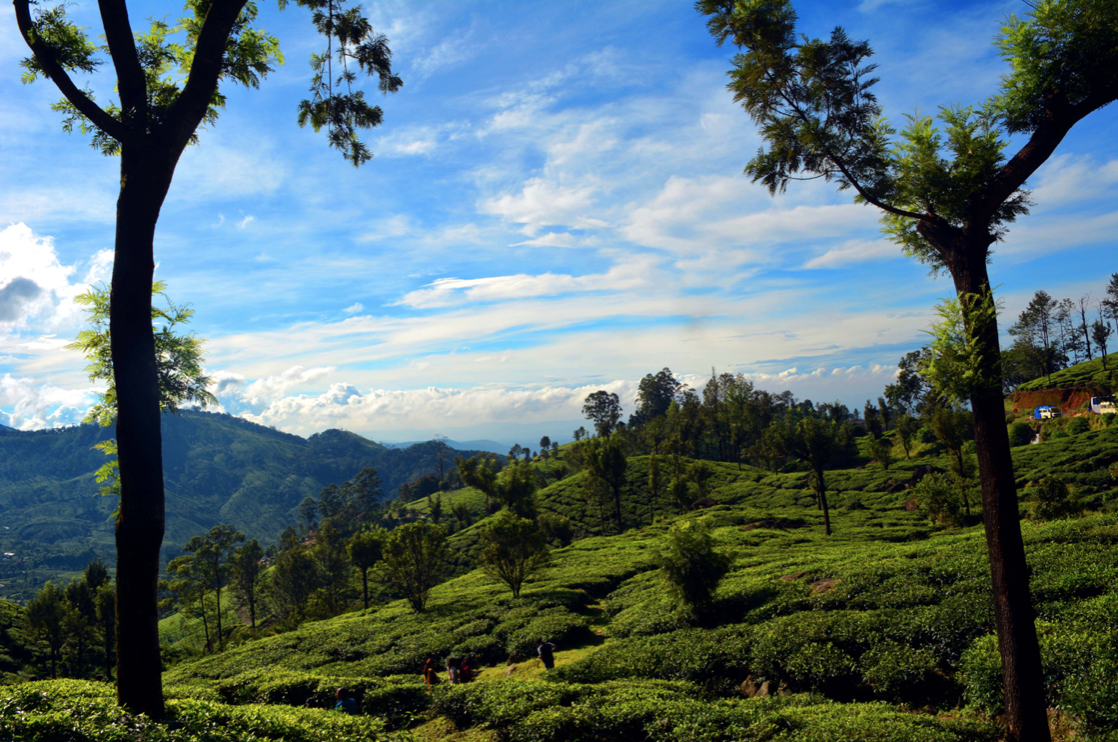
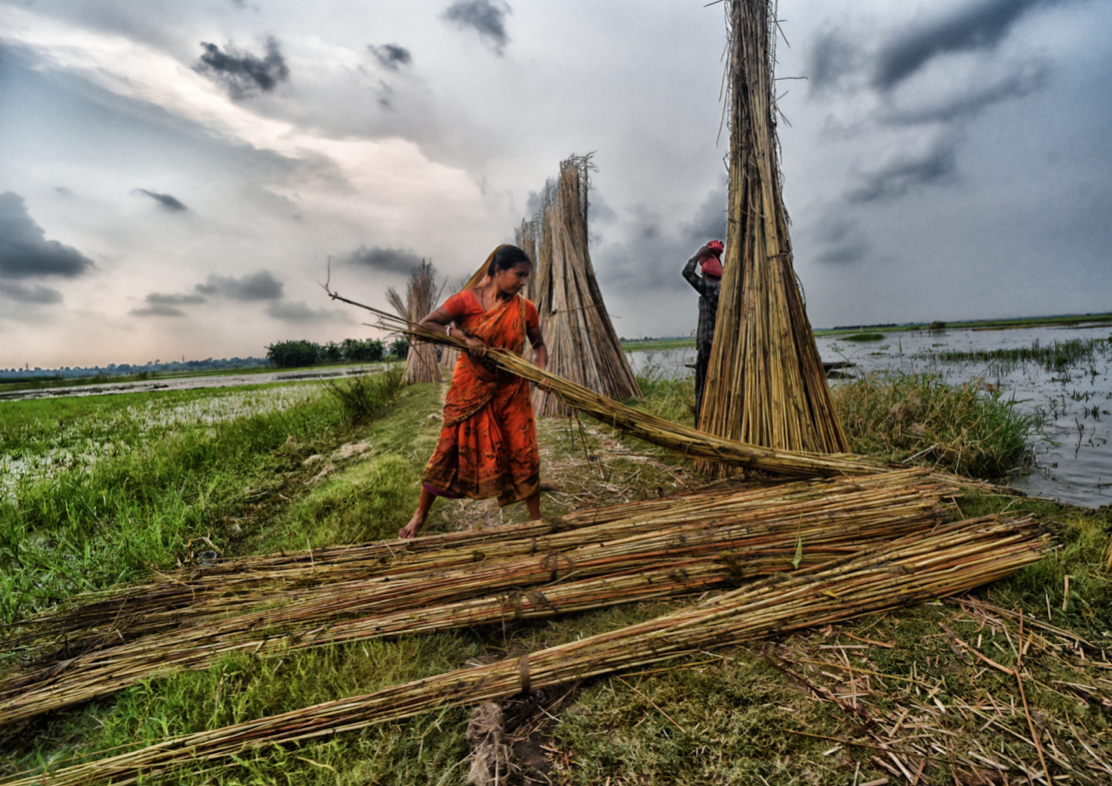
SUSTAINABLE FARMING
Looking at the specific farming of jute, the environmental footprint is lower than when using other materials like cotton. In the future, we want to help secure that the sustainability performance of jute when comparing with other raw materials is also documented better.
Therefore, we want to help develop guidelines to support the sustainable management and documentation of production of jute in Bangladesh. As of today, this includes no use of toxic chemicals, low water-use, and crop rotation to minimize any negative effects from the jute farming to the local ecosystems. These guidelines should help educate and train the farmers on how to cultivate and manage jute in a sustainable way.
GOOD WORKPLACE – EMPLOYEE HEALTH AND SAFETY
In Denmark, we only have a few employees, while most of our employees live in Bangladesh. Therefore, regarding social sustainability, Bangladesh is our focus area for employee safety and employee health.
We want to ensure safe working conditions for the employees in Bangladesh through securing legal employment contracts and providing protective policies. The employees in Bangladesh receive a fair salary, all have maternity leave, and are offered holidays.
Our goal is to further contribute to good living conditions for our employees in Bangladesh and ensure that they have a more secure life by providing them stability through permanent employment and arrange that their children also can receive medical help and go to school.
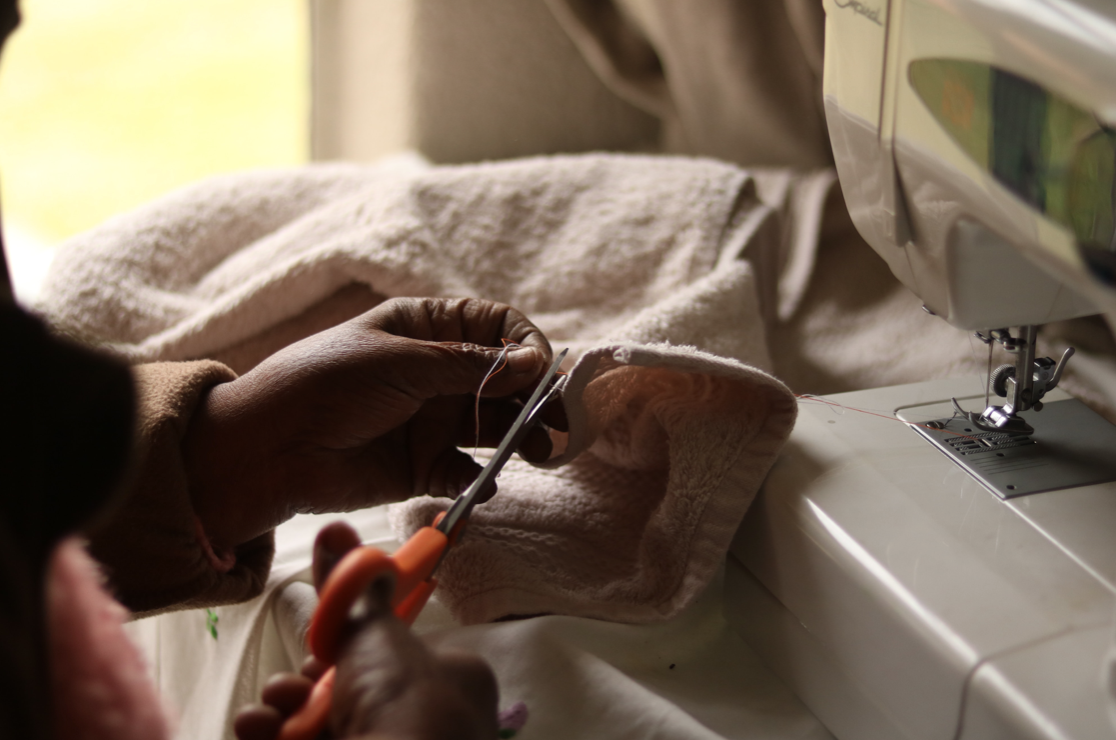
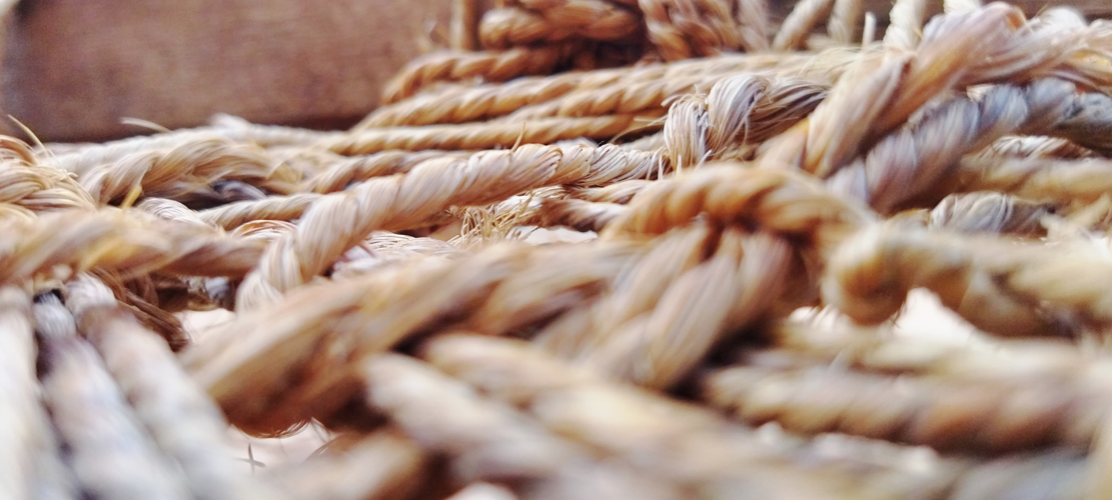
EMPLOYEE DEVELOPMENT
Diversity is a topic that we feel very passionately about, and it aligns with our values and hope of creating a bridge between Denmark and Bangladesh. We also wish to focus on diversity through our company actions as well.
The diversity ratio in our management team is 50/50.
In Bangladesh, most of our employees are female. Making products of jute has been a tradition for many years in Bangladesh and all our employees are thus experts in this field.
We hope to increase the number of both men and women in our production site to ensure jobs for more people as well as both genders in Bangladesh.
GOOD GOVERNANCE
As part of our commitment with good governance, we have established an ESG (environment, social and governance) management team in Denmark to ensure that we stay on track with our sustainability efforts and continue to improve our practices. Our ESG team will collaborate with our production site in Bangladesh, to identify areas for improvement, implement new sustainability initiatives, and track progress towards our goal of promoting jute products in Denmark while supporting the local community in Bangladesh.
At Jutebar, we take our social responsibility seriously and are committed to creating a sustainable and ethical supply chain. We are very aware of the negative impact of unpaid labor and child labor on communities and society, and we categorically refuse to support any such practices. All our employees in Bangladesh have a legal employment contract to ensure no violation of human rights.
In the future, we plan to further reinforce our commitment to sustainability by implementing ESG-policies that cover a range of issues such as the environment, climate change, human rights, labor rights, and anti-corruption measures. By integrating ESG considerations into our supply chain management, we aim to minimize risks and risks of violations, and ensure that our operations have a positive impact on both people and the planet.

